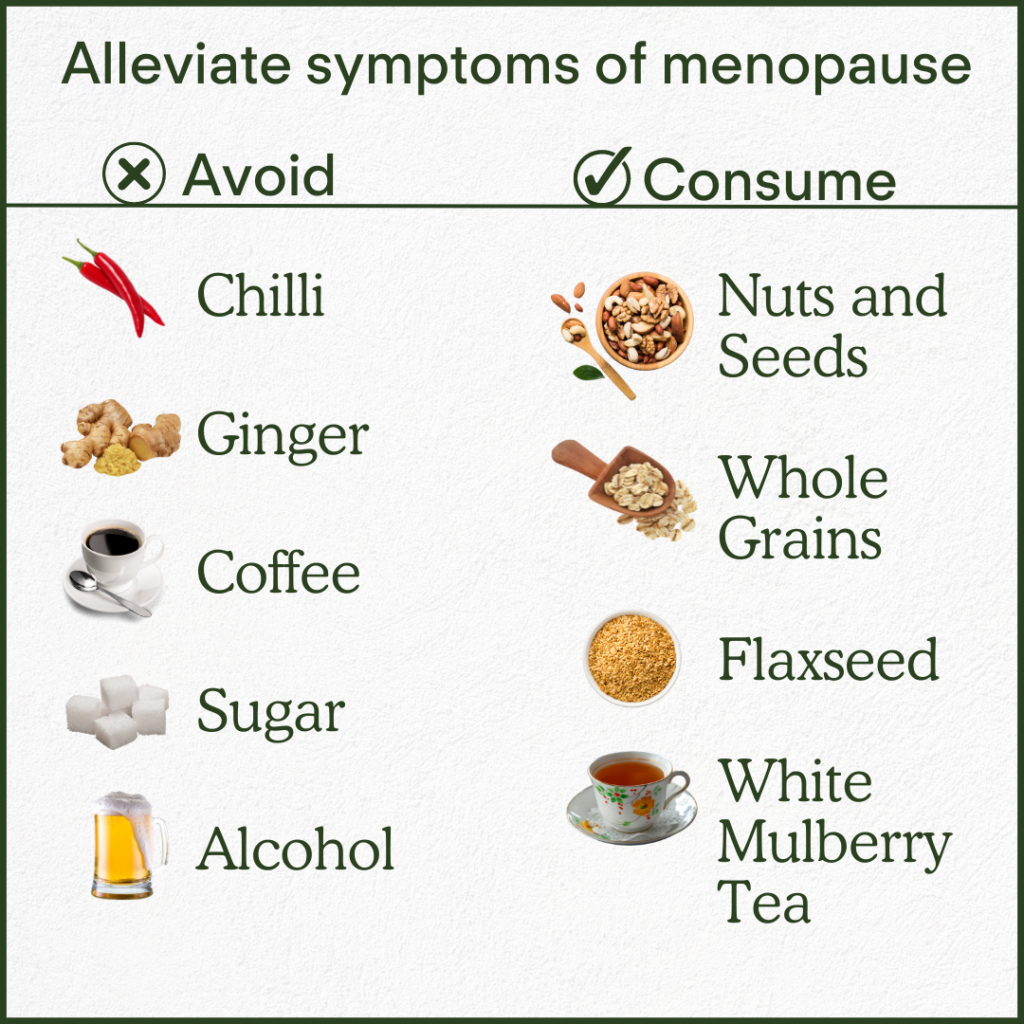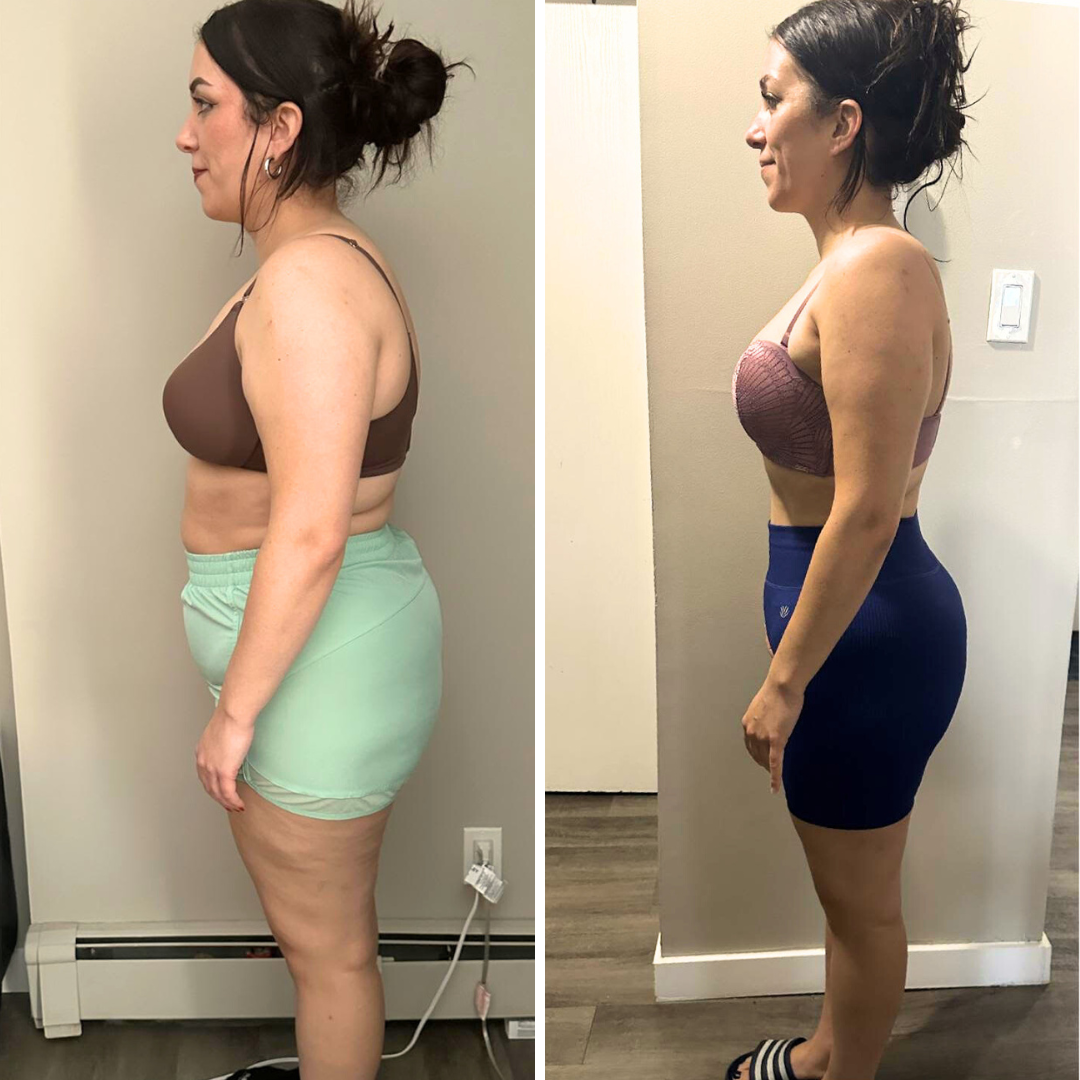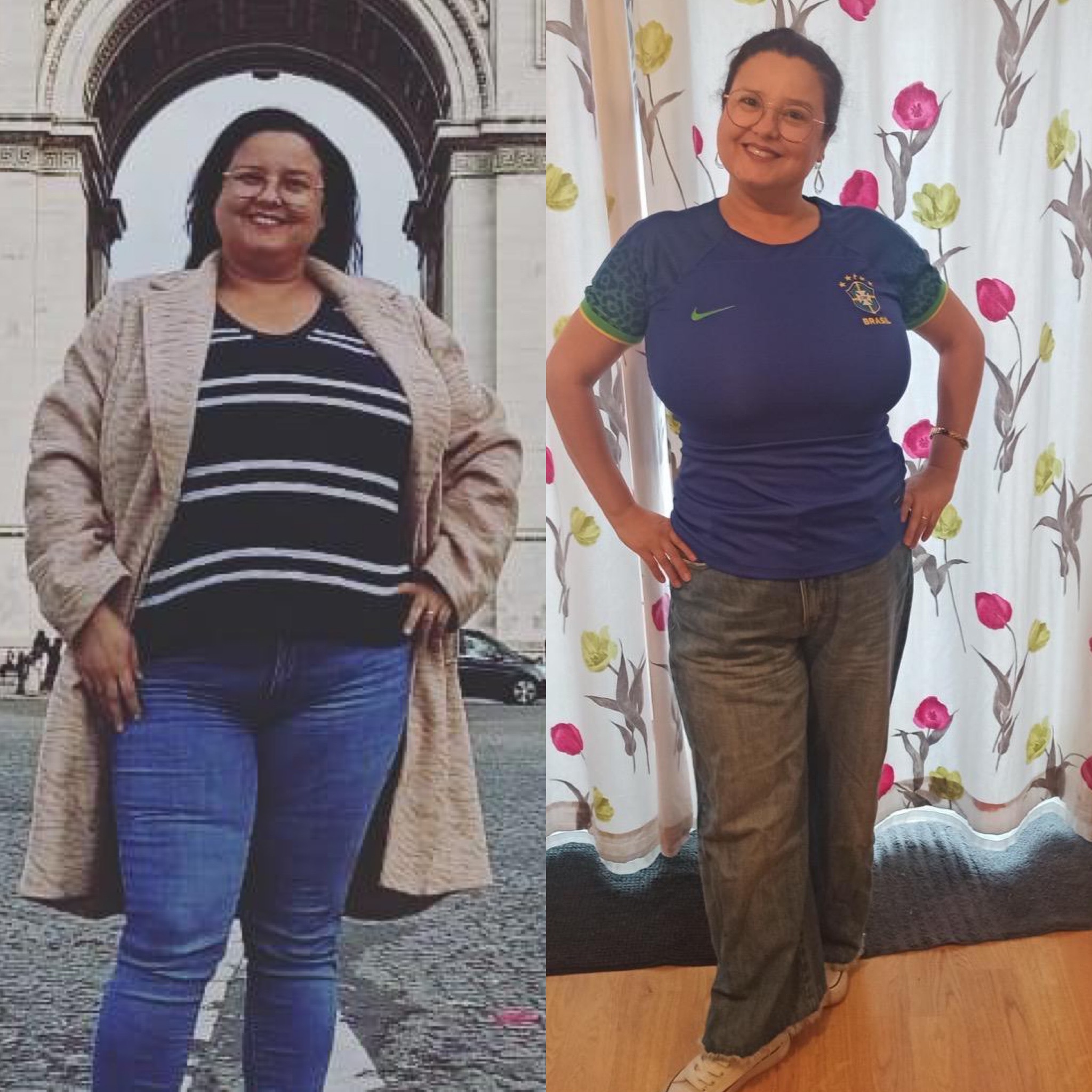Menopause Nutritionist’s Top Tips for Managing Symptoms and Diet

Menopause shouldn’t be faced alone! As a nutritionist based in the Harley Street area of central London, I receive many women in my practice weekly seeking help to find the best diet for menopause. A diet that not only helps to manage the symptoms but also aids weight loss. If you were my patient Here are the best tips from a menopause nutritionist:
1. Foods to Avoid
Certain foods can trigger or worsen menopausal symptoms like hot flashes, irritability, or weight gain. Try to avoid the following:
- Chilli
- Ginger
- Coffee
- Sugar
- Alcohol
2. Foods to Incorporate
Including nutrient-rich foods in your diet can improve overall health and ease menopausal symptoms:
- Nuts and seeds: These provide essential nutrients that support hormonal balance.
- Whole grains: A great source of fibre and essential vitamins.
- Flaxseed: Known for its benefits in balancing hormones.
- White mulberry tea: Offers several health benefits, including helping to regulate blood sugar levels.
I created this infographic so you can screen print and save the best tips for menopause and nutrition.

3. Herbal Teas for Menopause Relief
Herbal teas can be calming and soothing during menopause. Who doesn’t enjoy a delicious and aromatic herbal tea? Try drinking tea made from passion fruit leaves, chamomile flowers, and lemon balm to reduce anxiety and promote relaxation. These herbal teas are easily found in health stores or online.
4. Chocolate as a Treat
Adding 30g of 70% dark chocolate to your daily routine can help curb sweet cravings and ease anxiety, making it a delicious way to find relief. What a delicious way to manage menopause symptoms!
5. Exercise to Stay Active
Physical activity is essential during menopause. It helps reduce anxiety, prevents weight gain, and improves mood. Focus on weight-bearing exercises as they help to maintain muscle mass. Muscle mass is important as the more muscle we have the higher our metabolism, meaning we burn more calories daily. Some effective forms of exercise include:
- Weightlifting
- Walking
- Running
- Swimming
6. Healthy Snacks
To prevent weight gain, opt for healthier snack choices. Instead of high-calorie processed foods, choose fresh fruit or small portions of nuts like almonds, walnuts, or coconut chips. Including raw vegetables in both your lunch and dinner can also help keep weight in check. The best diet for menopause can be designed by a nutritionist as they will be able to develop a perfect action plan for your unique body, preferences, and goals.
7. Hydration
Staying hydrated is crucial, especially during menopause. Drink plenty of water throughout the day. As a nutritionist in London, many patients ask me how they can make water more interesting. My top suggestions:
- Add fresh lemon, mint leaves or raspberries to your bottle
- Drink herbal teas, cold or warm
- Get the habit, the more you sip, the more you enjoy!
8. Protein
Additionally, make sure your meals include protein-rich foods like:
- Eggs
- Fish
- Chicken
- Pork
- Seafood
- Red meat (in moderation)
This will help fight cellulite and maintain muscle mass as your body changes. Plant-based protein sources like pulses are a great addition to menopause diet. Probably you read a lot about adding more protein to your meals, but how much you should be adding is a personal matter. A menopause nutritionist near you can help you understand the exact amount and frequency of protein in each meal. Personalised nutrition during menopause is the key as every metabolism is different and menopause has different stages.
9. Supplements
Consider adding the following supplements to your diet to further support your body during menopause:
- Hydrolysed Collagen for skin elasticity and joint health.
- Magnesium for improved sleep and reduced anxiety.
- Omega-3 to reduce inflammation.
- Coenzyme Q10 for heart health and energy production.
These supplements above are not only essential for women in menopause but also for women above 40, or in peri-menopause.
10. Low-Carb Diet
A low-carb diet means eating less carbohydrate than a typical diet. It doesn’t mean cutting it out completely. Reducing carbohydrates can be a smart strategy for controlling menopausal symptoms and losing weight. This is especially important during menopause when a woman’s metabolism often slows down. Opting for a low-carb diet can help regulate weight and balance blood sugar levels. However is important to remember that changing your diet to a low-carb diet should be done by a registered nutritionist. Removing foods from your diet without replacing them properly can cause nutrient deficiencies.
11. Manage Weight During Menopause
If you’re struggling with weight gain during menopause, remember that small changes can lead to big improvements. Focus on making gradual adjustments to your diet and exercise routine. If you need guidance, consider seeing a menopause nutritionist.
By incorporating these changes, you can manage menopause symptoms more effectively and lead a healthier, happier life during this transitional phase. Remember, you’re not alone—many women face these challenges, and with the right support from a menopause nutritionist, you can live menopause in a more enjoyable and controlled way.
Get an action plan with a Free Assessment!
Get personalized insights to enhance your well-being and achieve your goals. In this 15-minute video call, we will listen to you and guide you on what you need to do.
Schedule Your Free AssessmentRecent blogs







